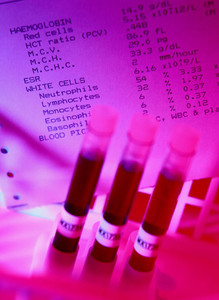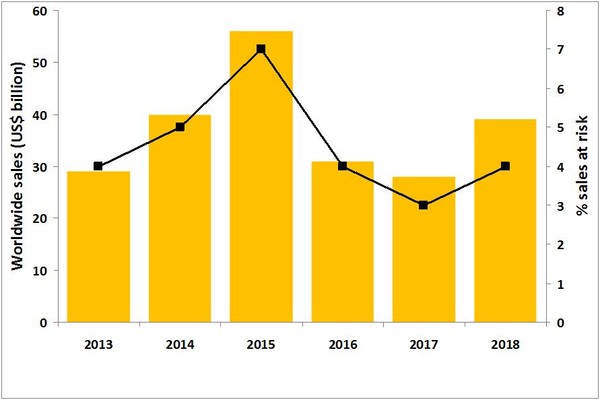During 2011 and 2012 a whole host of patents have expired on many blockbuster drugs. In fact it was estimated that in 2012 US$33 billion of sales would be lost due to the patent cliff [1].
While brand-name drug manufacturers have lost out in the past years, generics manufacturers have definitely been reaping the benefits. In the case of Pfizer’s blockbuster cholesterol-reducing drug Lipitor (atorvastatin), for example, in the third quarter of 2012 the brand-name drug achieved only 29% of the sales for same period in 2011. This compares to generics sales, which went through the roof in the first six months of 2012, after the patent on Lipitor expired in November 2011, achieving worldwide sales of generic atorvastatin of US$1.7 billion.
Antipsychotics
The brand-name psychiatry sector has been hard hit, with four major antipsychotic drugs: Zyprexa (olanzapine), Seroquel (quetiapine), Geodon (ziprasidone) and Invega (paliperidone), losing US patent protection during 2011/2012.
Mergers and niche markets
In order to combat the insurgence of generics some brand-name manufacturers are turning to niche markets, such as adjunctive therapies for hard-to-treat schizophrenia symptoms, e.g. negative and cognitive symptoms. Other originator companies have turned to licensing deals and mergers as a way to ride out the patent cliff. This strategy allows companies to gain access to late stage drugs and other niche markets, e.g. the rare disease market, in order to fill gaps in their product pipelines.
It is not over yet
Brand-name manufacturers cannot breathe a sigh of relief just yet, as the patent cliff is not finished. The peak of patent losses was 2012, with US$67 billion or 9% of worldwide prescription drug sales open to generics competition. However, a further US$290 billion of sales will lose patent protection and be exposed to generics competition between 2012 and 2018. In fact in 2015 another peak is predicted, with sales of US$56 billion or 7% of prescription drug sales losing patent protection, see Figure 1.
Figure 1: Worldwide sales at risk from generics competition 2013‒2018 [1]
Notable patents expected to expire between 2014 and 2015 include those for Abilify (aripiprazole), Celebrex (celecoxib), Evista (raloxifene), Gleevec (imatinib) Nexium (esomeprazole) and Symbicort (budesonide and formoterol). Patents protecting biologicals expected to expire in 2013 include those for rheumatoid arthritis treatments Actemra (tocilizumab) and Rituxan (rituximab).
Increased spending on generics
The good news for generics manufacturers is that spending on brand-name drugs is expected to shift to generics. Globally spending on generics is anticipated to increase from US$242 billion to US$400–US$430 billion by 2016. This compares with a relative small increase in spending expected for brand-name drugs from US$596 billion to US$615–US$645 billion.
Editor’s comment
If you would like to receive* a table detailing the brand-name drugs with large revenue losses in 2011–2012 or a table listing selected drugs with patents estimated to expire in 2013, please send us an email.
*For profit organizations subjected to a fee
Related articles
Pfizer continues to fight for Lipitor
2013’s biggest patent expiries
Patent cliff and the generics industry
Reference
1. Harrison C. Dangling from the patent cliff. Nat Rev Drug Dis. 2013;12:14-5.
Permission granted to reproduce for personal and educational use only. All other reproduction, copy or reprinting of all or part of any ‘Content’ found on this website is strictly prohibited without the prior consent of the publisher. Contact the publisher to obtain permission before redistributing.








 0
0












Post your comment